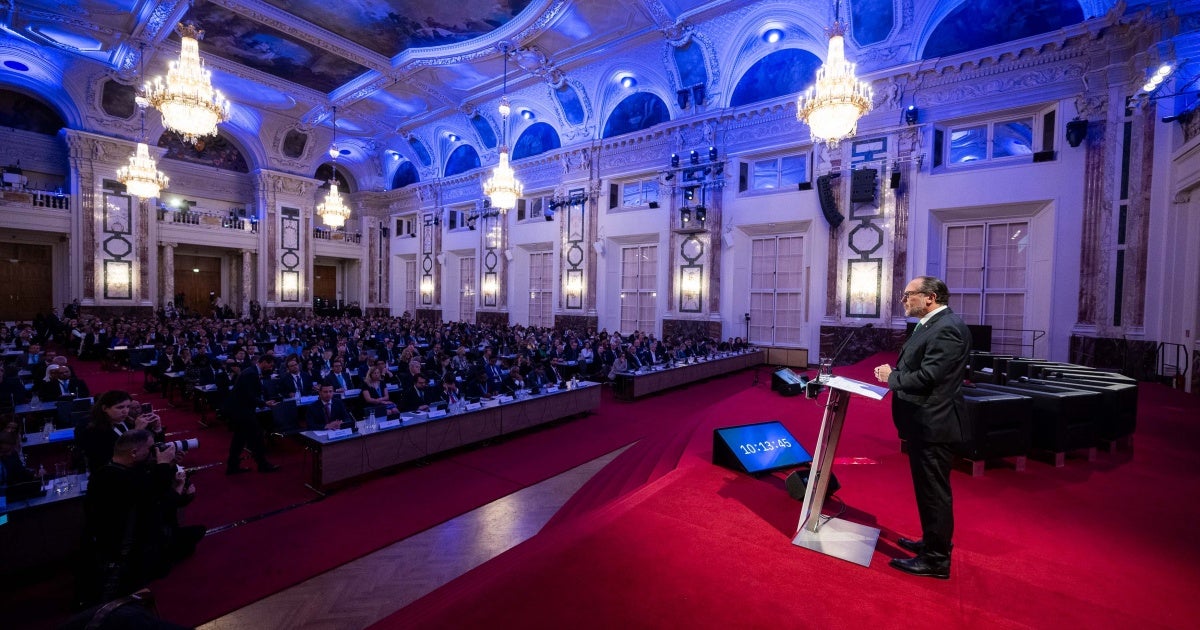(Washington, DC, May 02, 2024) – Governments concerned about autonomous weapons systems – so-called killer robots – should urgently act to start negotiations on a new international treaty to ban and regulate them, Human Rights Watch said today. Such weapons would select and use force against targets based on sensor processing rather than human inputs.
“The world is approaching a tipping point for acting on concerns over autonomous weapons systems, and support for negotiations is reaching unprecedented levels,” said Steve Goose, arms campaigns director at Human Rights Watch. “The adoption of a strong international treaty on autonomous weapons systems could not be more necessary or urgent.”
On April 29 and 30, 2024, more than 1,000 representatives from 144 countries and international organizations, industry, academia, and civil society, including Human Rights Watch, attended a high-level international conference in Vienna on the problems raised by autonomous weapons systems. The conference featured a message from Pope Francis and remarks by the foreign ministers of Austria, Albania, Bangladesh, Costa Rica, and Sierra Leone, as well as the United Nations disarmament chief and president of the International Committee of the Red Cross. Nearly every speaker emphasized the seriousness of this issue and the need for urgent action.
The conference host, Austria, issued a chair’s summary of the meeting, which “affirms our strong commitment to work with urgency and with all interested stakeholders for an international legal instrument to regulate autonomous weapons systems.”
The Vienna conference followed a series of regional meetings on autonomous weapons concerns over the past 14 months, in Costa Rica, Luxembourg, Trinidad and Tobago, Philippines, and Sierra Leone. Most issued regional communiques calling for the urgent negotiation of a legally binding instrument containing prohibitions and restrictions on autonomous weapons systems.
On December 22, 2023, 152 countries voted in favor of the first UN General Assembly resolution on autonomous weapons systems, while four voted no and 11 abstained. General Assembly Resolution 78/241 asks UN Secretary-General António Guterres to seek the views of countries and other stakeholders on ways to address the challenges and concerns raised by autonomous weapons systems “from humanitarian, legal, security, technological and ethical perspectives,” and reflect those views in a report to the General Assembly in the second half of 2024.
“All countries have a role to play in preventing machines from taking human life in armed conflict and law enforcement,” Goose said. “Governments should submit their views to the UN on the concerns and challenges raised by autonomous weapons systems and express their support for negotiating a new international treaty.”
Some autonomous weapons systems have existed for years, but the types, duration of operation, geographical scope, and environment in which such systems operate have been limited. However, technological advances are spurring the development of autonomous weapons systems that operate without meaningful human control, delegating life-and-death decisions to machines. The machine rather than the human operator would determine where, when, or against what force is applied.
For the first time, discussion of “lethal autonomous weapons systems” has been added to the provisional agenda of the annual session of the UN General Assembly, which opens in September. The General Assembly provides an inclusive and accessible forum for countries to address this issue. Tackling the killer robots challenge under its auspices would allow greater consideration of concerns that have been largely overlooked in discussions held thus far, including ethical perspectives, international human rights law, proliferation, and impacts on global security and regional and international stability, including the risk of an arms race and lowering the threshold for conflict, Human Rights Watch said.
Most treaty proponents have called for prohibitions on autonomous weapons systems that by their nature operate without meaningful human control or that target people, as well as regulations to ensure that no autonomous weapons systems can be used without meaningful human control.
Talks on lethal autonomous weapons systems have been held at the Convention on Conventional Weapons (CCW) in Geneva since May 2014 but have failed to deliver a substantive outcome. The main reason for the lack of progress under the CCW is that its member countries rely on a consensus approach to decision making, which means a single country can bar passage of a proposal. A handful of major military powers have exploited this to repeatedly block proposals to negotiate a legally binding instrument.
“Autonomous weapons systems are a grave problem that can affect any country in the world, so clear, strong, global rules are essential,” Goose said. “Voluntary measures such as codes of conduct and political declarations only pave the way for a future of automated killing.”
Human Rights Watch is a cofounder of Stop Killer Robots, the coalition of more than 250 nongovernmental organizations across 70 countries that is working for new international law on autonomy in weapons systems.




